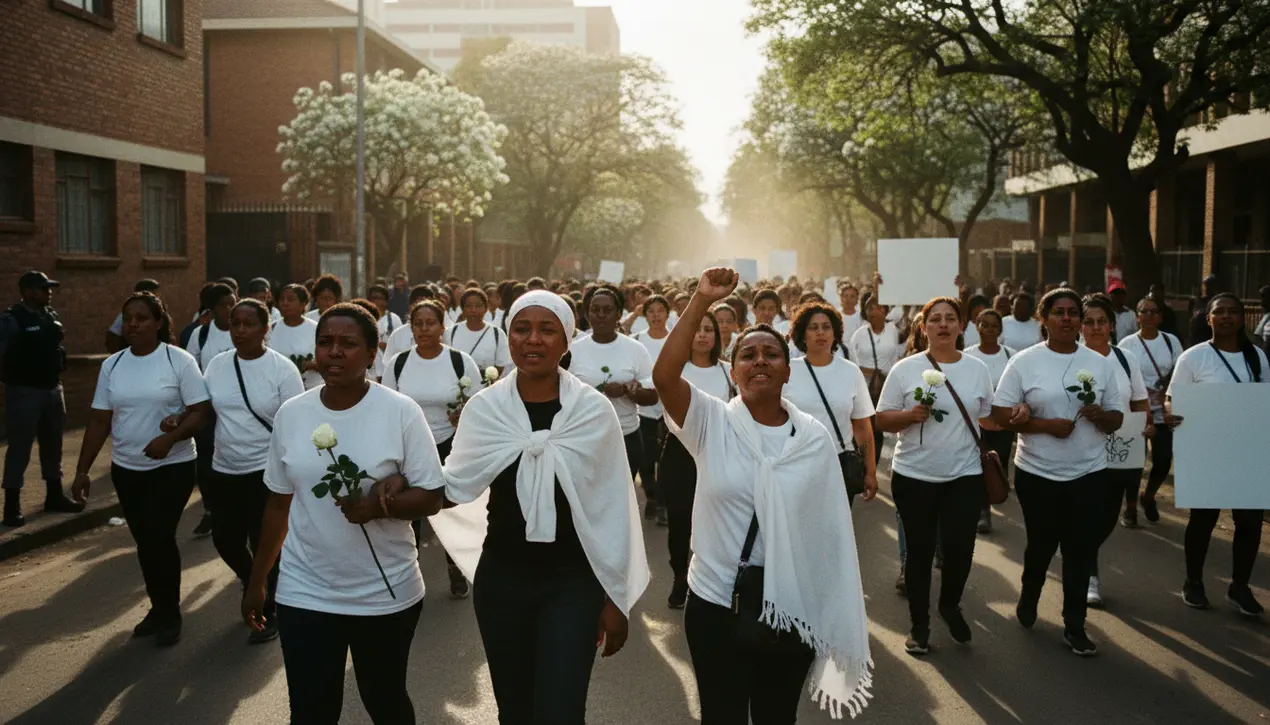
Politicsprotests & movements
South Africa Declares Gender Violence a National Disaster After Protests.
AN
Anna Wright
1 day ago7 min read5 comments
The staggering statistic that fifteen women are killed every single day in South Africa, a nation already bearing the grim distinction of one of the world's highest rates of gender violence, has finally shattered the political inertia, compelling President Cyril Ramaphosa's government to declare gender-based violence a national disaster. This monumental decision, announced amidst a groundswell of public fury and nationwide protests led predominantly by women's groups, marks a critical, albeit long-overdue, acknowledgment of a crisis that has festered for generations.The declaration, a tool typically reserved for catastrophic events like floods or pandemics, unlocks emergency powers and funding, signaling a state-level recognition that the very fabric of society is under attack from within. To understand the profound weight of this moment, one must look back at the legacy of apartheid, a system that not only brutalized the black majority but also entrenched patriarchal norms and normalized violence as a tool of control, creating a toxic foundation upon which post-apartheid South Africa has struggled to build a truly safe and equitable society.Despite a constitution lauded as one of the most progressive on earth, with robust protections for women and LGBTQ+ individuals, the chasm between legal theory and lived reality has been vast and bloody, with police stations often serving as sites of secondary trauma for survivors reporting assault. The recent protests, echoing the powerful #AmINext and #TotalShutdown movements, were not sparked by a single incident but by a cumulative, unbearable grief—a mother mourning a daughter killed by a partner, a student disappearing on her way to class, the constant, low-grade terror of walking home.In response, the government's disaster framework promises to fast-track the processing of rape kits, establish more specialized sexual offenses courts, and improve support services, yet seasoned activists like Sibongile Ndashe of the Initiative for Strategic Litigation in Africa warn that without a simultaneous, deep-rooted assault on economic disenfranchisement, toxic masculinity, and a failing criminal justice system, these measures risk being mere palliatives. The declaration, therefore, is not an end but a beginning; it is a tool that civil society can now wield to demand accountability, to scrutinize budget allocations, and to force a national conversation that moves beyond hollow condemnation to actionable, systemic change. The world watches, for South Africa's battle is not its alone; it is a stark, painful microcosm of a global pandemic of misogynistic violence, and its success or failure in turning this declaration into tangible safety for its women and girls will serve as a profound lesson for nations everywhere grappling with the same deep-seated pathologies.
#gender violence
#South Africa
#national disaster
#protests
#women
#human rights
#featured
Stay Informed. Act Smarter.
Get weekly highlights, major headlines, and expert insights — then put your knowledge to work in our live prediction markets.
Comments
Loading comments...
© 2025 Outpoll Service LTD. All rights reserved.